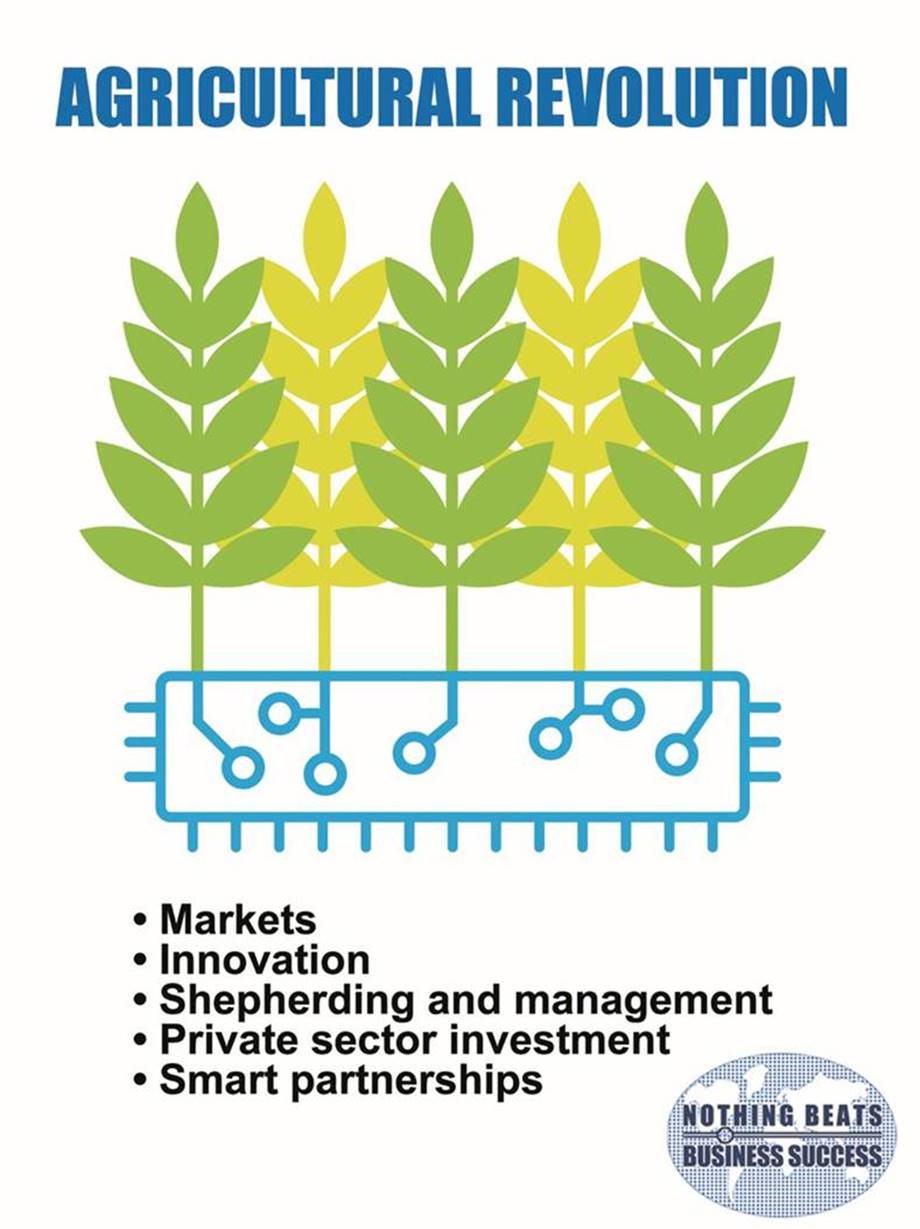“Now this I say, he who sows sparingly will also reap sparingly, and he who sows bountifully will also reap bountifully.” – 2 Corinthians 9:6
Much water has flowed under the bridge since the abolition of slavery in the 19th century. Some of the fertile lands of the Caribbean are still available for cultivation, though there has been a significant move from agriculture in land use policy.
Nothing short of an agricultural revolution is needed to make these lands productive again, rather than letting the land lie fallow and become a threat to public health. Since The Moyne Report in the aftermath of the Second World War, there has been much talk but little sustained action.
The ingredients of an agricultural revolution are markets and a market-driven selection of fresh and processed agricultural products, innovation, shepherding and management, private sector investment and smart partnerships. Of course, there must be political will since the government’s responsibility is to set policy and provide a user-friendly enabling environment for private sector businesses to thrive.
The Caribbean has no federal government, therefore private sector initiatives will have to be taken at the country level. As each country learns, the experiences may be shared with others and collectively the region will grow.
My experience has been that: (1) there is always a global food market; (2) there is no shortage of innovative ideas; (3) shepherding and management are available locally, regionally and internationally; (4) government incentives to stimulate private sector investment is the biggest single constraint to progress; and (5) we have been myopic in promoting smart partnerships and developing synergies from these relationships.
Let me share a potential solution by means of an innovative example. In January 2015, the U.S.-registered Global Business Innovation Corporation (GBIC), the principals of which are a group of my professional colleagues, visited Trinidad and Tobago. GBIC invited local food manufacturers to a presentation on The Caribbean Food Business Innovation Revolution which was interested in growing the Caribbean economies through increased agricultural, agri-business and food and beverage (F&B) exports.
These manufacturers were very interested in expanding their businesses in response to a potential market pull from the U.S. market. The project never got off the ground because of the lack of government incentives to stimulate private sector investment in an environment where the quantum of private sector savings is significant.
The broad objectives of the GBIC team proposal were to transform the Caribbean agricultural environment by combining: (1) Food design skills and expertise to transform agricultural commodities and existing products and services into high-value food & beverage experiences that met the needs of consumers in the U.S., Canada, Europe and the world; (2) Open Innovation Services skills to find and evaluate new technologies that were needed to develop high-value F&B products well as create partnerships with foreign manufacturers and retailers who would sell Caribbean F&B products or license the formulae; (3) Shepherding expertise and tools to successfully increase efficiency to support productivity, manufacturing and expansion of F&B products; and (4) Public relations and communications skills and expertise to promote the vision and progress of the Caribbean Food Business Innovation Revolution.
In the coming weeks we shall propose other innovation examples in different sectors which could lead to change centred around disruptive models, engaging stronger partners and reengineering existing business activity.

Let us revolutionize our approach to agricultural development by implementing a global market-driven strategy, which will create a demand much greater than our potential to supply. This will then force us to collaborate and, in so doing, allow our farmers to sow bountifully and get just rewards for their efforts.
The number one priority for the private sector, with government support, is to engage in a thrust which is different from that which obtains. We need to change by embracing opportunities for the advanced/innovative digital future of agriculture!
